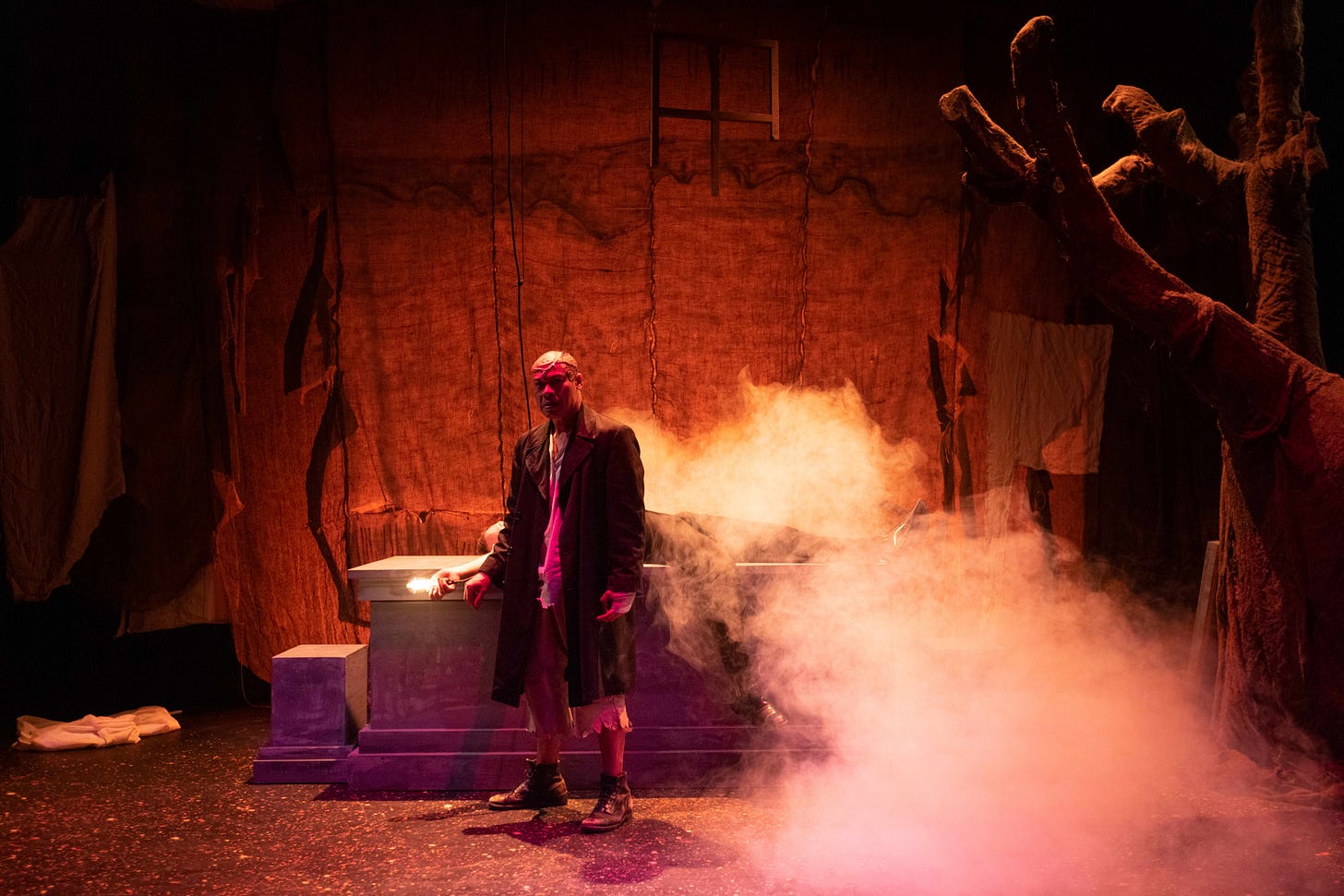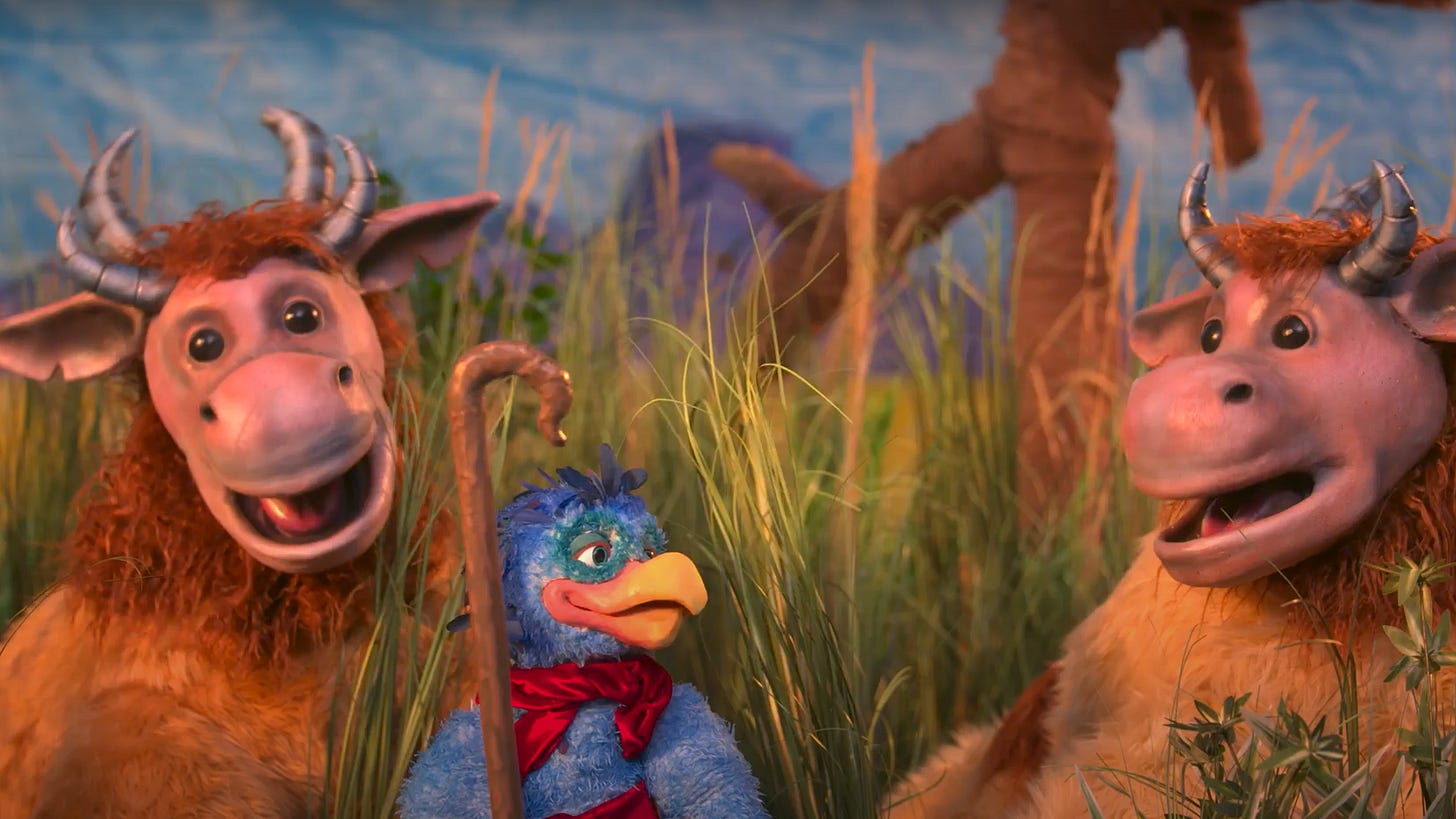How I Write Grants to Fund My Films
Want to make art? Usually that takes money. Here's some tips on how to write grants to get money for your art!
In my last post, I wrote at length about the kind of system I want to make films in, the kind of community I want to be a part of, and how I want to make my art. Unsurprisingly, many people wanted something more practical than wishful thinking (I’m looking at you /filmmakers subreddit).
“This is a thoughtful vision, but…” and “your ideas are nice. but there are no solutions.” I hear you. So, here’s the start of turning thoughts to action.
Back in April, I wrote a whole post about How I Fund My Creative Projects. I talked a lot about arts grants and funding, so now it’s time to share how to actually get that money. I’ve got some ideas on how to write a solid grant proposal.
Why should you listen to me? I hear you. I’m just some person on the internet, but…
My first film project had a budget of $167,000, entirely funding by grants. I got $30,000 for my most recent short film Strangers (which is currently on the film festival circuit and recently won an award). I’ve been writing grants for over a decade and in addition to funding my own projects, I work as a freelance grant writer and consultant. I’ve also been an assessor for multiple grant juries, so I’ve read a LOT of grants over the years. Now I want to share what I’ve learned.
I’m not saying I’m an expert, but I’ve been doing this for a while. Even so, I just got another “no” from a grant I was really excited about. (Luckily, I already have a $24,000 grant for this project, so it’s still moving forward).
Writing grants is hard. Like many other aspects of being an artist, you have to get used to rejections. A lot of rejections. But if you really want to make art, a few rejections shouldn’t stand in your way. And if that’s the case, I’ve got some tips that I’ve learned over my years writing grants.
These are specific to writing government arts grants, but the same principals can be applied to pitching your project or talking to private investors.
These are typically the first things I tell people when I’m hired to help write a grant. And I’m giving them to you now. FOR FREE. So… here they are.
My Top Tips for Writing Grants

Know who you’re talking to.
So you have a project. You’ve picked a grant. But who is going to be reading this?
Is it a local grant? A national one? What are the priorities of the funding body? If you’re pitching a film, it’s the same thing. Is this a big studio? A little one? What films have they made in the last four years? Knowing these answers will help you know what to focus on when writing.
Do your research so you know who you’re requesting money from and what projects they fund. Without this, you can end up spending ton of time on a grant and not even be eligible (which I learned the hard way).
Not sure? Email someone at the funding organization. Get on the phone with a grant agent. That’s what they’re there for.
Put yourself in their shoes.
This is probably the most important thing. Once you know who is assessing your grant, don’t just dive right into the writing part! Take some time to think about what that means for how you put together your proposal.
This helps you tailor your pitch to who you're talking to. Most grants have a jury of peers who assess the applications. This means you’re talking to other artists and usually ones with expertise in your field. These people usually have to read 30, 40, or even 50 grants at a time. Sometimes more! Since they’re going to be reading so many applications, do your best to make their job as easy as possible.
A great way to do that is…
Start with your values and purpose.
I’ve learned the hard truth that the “what” of your project is often not as important as the why and the how. So share your values. Share the purpose of project and why you want to undertake it at this time.
The jury probably doesn’t know you. Set yourself up for success by introducing yourself, your project, and providing a strong reason why it’s important. Just like when you’re seeking money from private investors, you need to instill confidence in who you’re talking to.
As I mentioned, I just wrote a whole post about my values as a filmmaker. Check it out if you want a place to start thinking about your own values:
Tell a story with your grant.
You’re an artist. You’re a storyteller! Whether your writing a grant or pitching to someone on zoom, tell them a story. A story about you. About your project.
Who are the characters? What do they want? Make these people FEEL something.
Making art (especially film and theatre) is a collaborative endeavour between humans. That all starts at the beginning when you’re finding money to make the project happen. You have a story as an artist, share it in your grants and pitches.
Ask for what you need with your budget.
You’ve got to be realistic when you put together your budget. Remember, the people reviewing your grants are artists too. They probably have experience in the art form your submitting for. They know how much things cost. So don’t bullshit them.
If you need a huge budget, don’t be afraid to ask for it. But back it up with strong evidence. If you don’t need a ton of money, that’s okay. Don’t pad the budget with useless nonsense though, because they will know.
A lot of people I talk to have anxiety about grant budgets, so I’m going to give an extra tip about the money stuff: anything you put into the grant write up should be reflected in the budget, and vice versa.
When I work as a grant juror, this is something I keep a close eye on. If you write at length about caring for artists but then the artists fees in your budget are way below industry standard, that’s a red flag for me. (You’d be surprised how often I see that happen…) If you didn’t mention costumes or sewing at all, but there’s two sewing machines in your budget…WHY? Everything needs to work together to tell one story and the budget is an important part of that.
Spend more time on your support materials.
This is where I see a lot of artists fall short, and this is the place I really think artists should be going above and beyond. Photos, videos, pitch decks, letters of support—use them!
You know the old adage “show don’t tell”? Support material is where you can really show the person evaluating your grant who you are. Your track record. Your team. This is where you can show off!
I make sure my support materials answer the journalistic questions: who, what, where, when, why, how. And, like with the budget, make sure what you’re including actually supports your write up and the project your seeking funds for.

PLEASE read the guidelines. Please.
My final thought, but an important one: read the guidelines. Then read them again. And again. You have to know what they’re asking for. You need to know the rules your playing within. Most grants provide a matrix or judging criteria. Without knowing how you’re assessed, how do you know what to focus your attention on?
For the write up, make sure you read the questions carefully. And them answer them. It’s really that easy. Just make sure you answer the questions.
And… that’s my list! Feeling inspired? Maybe a little overwhelmed? Well, what are you waiting for? Go out there and write some grants! Write your pitches. Get some money and let’s make some cool art together.
OTHER NEWS
Things Have Changed…
Some of you may notice that my newsletter looks different today. You’re not imagining it!
Now that I’ve been working on Exploring Filmmaking for over four months (wow, time has flown), I’m streamlining my process a bit. I’ve merged my mail lists and I’m consolidating posts from my blog. Moving forward, Substack is going to be the primary way I’m writing and sending out this newsletter.
What does that mean for you, dear newsletter reader? Nothing, but the new look. I’ll keep writing every two weeks and you can keep reading. Easy peasy.
I’m Heading to Fantasia!
I’m heading to Fantasia Film Festival tomorrow! My twin and I are spending our birthday week in Montreal, and I’m so excited.
Any advice or tips for attending my first major film festival? Any other filmmakers going too that want to meet up? Hit me up in the comments or send me an email.







Hi Andrew I love your post its such perfect timing too as I am finalizing a great application right now. Sorry I didn’t see your post earlier I’m based in Montreal home of the awesome Fantasia Festival ! Thanks for your wise words for grant writing very very excellent strategies you have shared!
How do you search for the grants in the first place? Thanks!